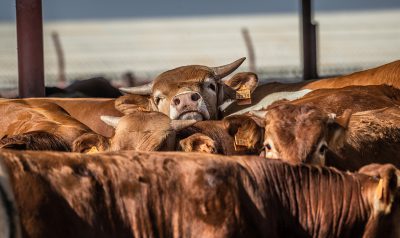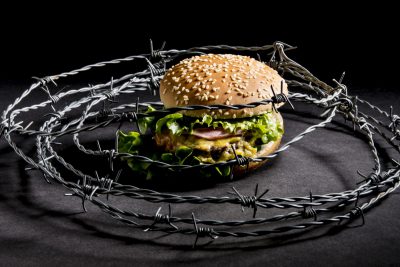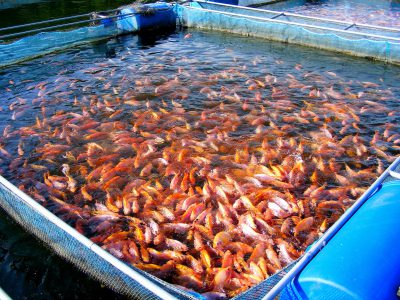Here’s a startling fact you may not know: even with the extreme weather caused by climate change, humans cultivate enough grain globally to feed twice as many people as there are on Earth today.
Why then, do 820 million people not have enough food to lead a basic, healthy life? That’s one in nine people who experience hunger every day.
The answer is on our plates
On average, over two billion tonnes of grain are produced worldwide each year. However, at least half of that grain is fed to animals exploited by the meat, egg, and dairy industries.
When we look more closely at certain types of grains (such as corn, oats, sorghum, and barley), the figures are even more shocking – with an estimated 77 percent of these crops going into animal feed.
Furthermore, ninety percent of all soy grown in the world is fed to chickens, cows, sheep, goats, pigs, and other animals kept in factory farmed conditions.
What’s most disturbing is many of these grains are cultivated in countries where children are starving to death. In fact, 82 percent of the world’s starving children live in countries that produce grains intended for use as animal feed, with those animals killed to satisfy tastes in the global north.
The problem with beef production
Beef comprises scarcely two percent of the world’s calories, and yet approximately 60 percent of the world’s agricultural land is occupied by beef production. It’s incredibly wasteful.
Whilst all forms of meat involve an enormous cost to the environment (and a lethal toll for animals) the problem with beef production is particularly pronounced. Beef production requires vast swathes of the Earth’s finite natural resources. Every day worldwide, cows in factory farms drink over 170 billion litres of water, and require 61 billion kilograms of feed! It takes over 15 000 litres of water to produce just one kilogram of beef – in contrast, one kilogram of wheat requires just 1 500 litres (that’s ten times less water!) Beef production is so land-hungry it drives deforestation, and is by far the biggest food-related emitter of climate-changing gases.
In a planet ravaged by the effects of climate change – where water and food security are real and ever-present pressures – why are we wasting precious natural resources on such unsustainable dietary habits?
Future food and water security
The United Nations describes food security as, “when all people, at all times, have physical, social and economic access to sufficient, safe and nutritious food to meet dietary needs for a productive and healthy life.”
With more than 3.1 million children dying from hunger and malnutrition every year – it’s clear that humanity must change our priorities, in order to actually provide food and water security for all.
According to the UN Water For Life project: “Major changes in policy and management, across the entire agricultural production chain, are needed to ensure best use of available water resources in meeting growing demands for food…”
The complex poverty cycle
Animal agriculture is directly responsible for many factors resulting in human hunger, starvation and death – all hallmarks that form part of the poverty cycle.
Unfortunately, the solution isn’t as simple as offering grain intended for animals to those humans in need. Multi-billion-dollar corporate influences also prevent social change from happening quickly. According to leading researcher Dr Richard Oppenlander, a very small group of multinational conglomerates maintains a monopoly over 65 percent of the world’s seeds and grains. These same companies are also responsible for controlling 80 percent of all slaughtered, processed and packed animal products in the world – which presents clear vested interests.
“This then drives how global resources are being used (land, water, rainforests, oceans, atmosphere, biodiversity), how money is spent, and how policies are determined,” Dr Oppenlander explains.
Earth has enough for need but not greed
“The earth can produce enough for everyone’s need. But not enough for everyone’s greed.” – Phillip Wollen, 2012
When faced with these sobering facts, it can be hard to maintain an optimistic outlook – or to picture a world that is kinder to both humans and animals. However, every individual can make a positive difference, and we can start right now.
Every credible institution from the United Nations to Harvard to Chatham House is warning us that we must move to a plant-based diet. If everyone did this, we could reduce the amount of land we use by 75 percent. Forests could recover, wildlife could flourish, and we could still feed the whole world with nutritious food.
“Go vegan to save the planet” isn’t just a slogan – it’s a message backed by mainstream science – and is a choice that shows solidarity with those communities affected by hunger and poverty.
If you’re interested in learning more, download our easy to follow Vegan Starter Kit. You’ll find plenty of delicious meal plans, ideas, and inspiration to start your plant-based journey today!



